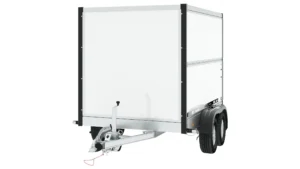Mastering the Terrain: Essential Off-Road Telehandler Operator Training
2025-07-09 05:25:30
Off-road telehandler operator training is a specialized program designed to equip operators with the skills needed to handle rough terrains safely and efficiently. Unlike standard telehandlers, off-road variants are built for rugged environments, requiring operators to master unique challenges such as uneven ground, steep inclines, and unstable surfaces. Training programs typically cover load management, stability principles, and emergency procedures to mitigate risks associated with off-road operations.
Safety Protocols in Off-Road Telehandler Operations Safety is the cornerstone of off-road telehandler operator training. Operators must learn to conduct pre-operation inspections, checking tire pressure, hydraulic systems, and load capacity to prevent accidents. Training emphasizes the importance of wearing personal protective equipment (PPE) and understanding load charts specific to off-road conditions. Additionally, operators are trained to recognize hazards like soft soil, hidden obstacles, and overhead obstructions, ensuring safe maneuvering in unpredictable environments.
Advanced Equipment Handling Techniques Off-road telehandler operator training includes mastering advanced handling techniques to maintain stability on rough terrain. Operators learn to adjust boom angles, control lift speeds, and distribute loads evenly to prevent tip-overs. Simulated scenarios help trainees practice navigating slopes, ditches, and muddy conditions while maintaining precise control. The training also covers troubleshooting common mechanical issues, such as hydraulic leaks or engine failures, ensuring minimal downtime in remote locations.
Adapting to Varied Terrain Conditions A key focus of off-road telehandler operator training is terrain adaptability. Operators must understand how different surfaces—such as gravel, sand, or wet clay—affect machine performance. Training modules include real-world exercises where operators practice traversing steep grades, crossing waterlogged areas, and operating in low-visibility conditions. By mastering these skills, operators can maximize productivity while minimizing equipment wear and tear.
Certification and Continuous Learning Completing off-road telehandler operator training often leads to certification, validating an operator’s competence in handling challenging environments. However, ongoing education is crucial, as technology and safety standards evolve. Many programs offer refresher courses and advanced modules, ensuring operators stay updated on the latest best practices. Employers increasingly prioritize certified operators, recognizing their ability to reduce accidents and enhance operational efficiency in off-road settings.
This report underscores the importance of comprehensive off-road telehandler operator training in fostering safety, efficiency, and adaptability. By investing in rigorous training programs, industries can ensure their operators are prepared to tackle the demands of off-road environments with confidence.








